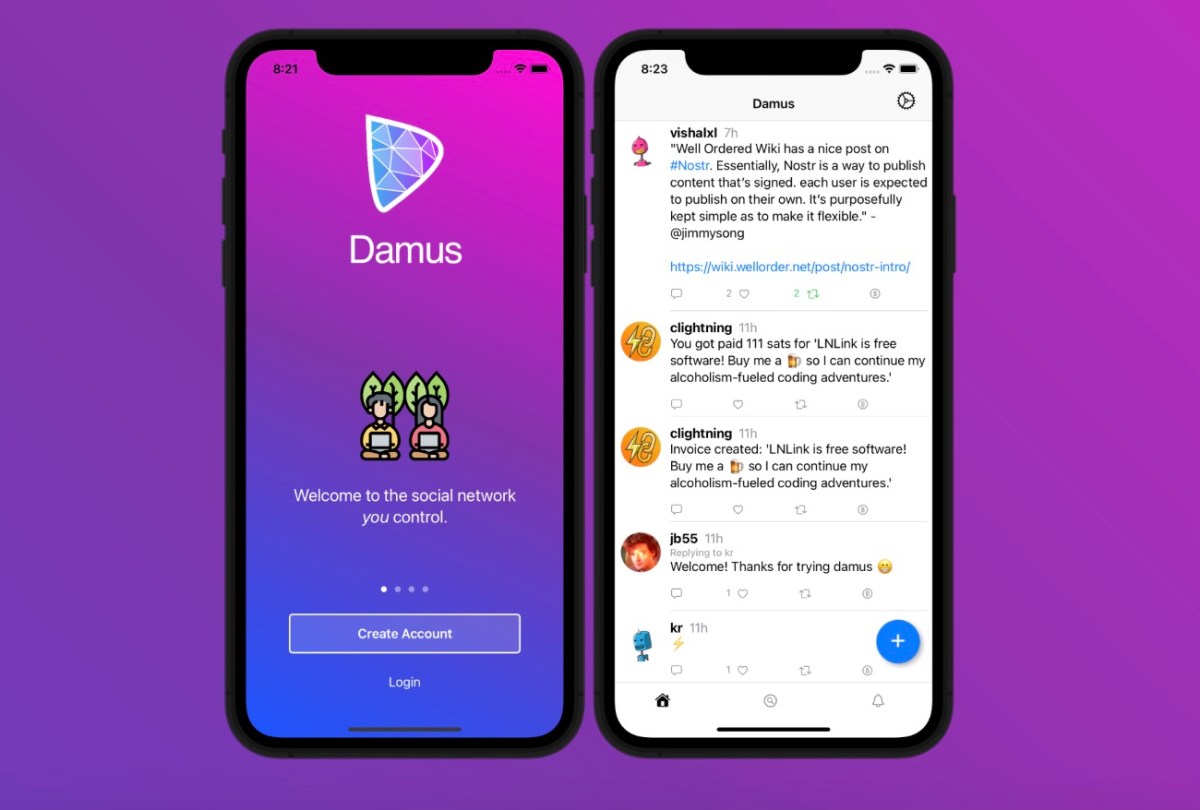Damus removed from Apple's App Store in China after two days
Damus, one of the fastest growing Twitter alternatives, was pulled from the Chinese App Store just two days after Apple approved the app.
The app, which runs on the decentralized social networking protocol Nostr backed by Jack Dorsey, was removed from the Chinese App Store at the request of the country's top internet watchdog because it "includes illegal content in China," according to an app review notice that Damus received and shared on Twitter.
Being decentralized means that there is no central authority deciding who can participate or say what on the platform. This made Damu's approval process difficult at first, as Apple requires services to have a mechanism to report objectionable content, but Damus eventually found a way to get listed in the Apple App Store. February 1.
The app's decentralized nature undoubtedly led to its short-lived debut in China, where information is tightly controlled by the government. Legally operating social networks in China all have built-in censorship tools to weed out illegal content or information prohibited by the authority. Anonymity is non-existent because user registrations are linked to people's real identities.
The authority has halted the distribution of Damus in the country through the App Store - Google Play is not available in China and there are a handful of domestic third-party Android stores which are often beyond the reach of foreign developers. But it seems that access is so far intact. Those who already have Damus on their phone can still view and comment on posts without having to bypass the Great Firewall, the country's censorship system that blocks or slows down certain foreign websites, starting February 3.
Nostr is designed to resist censorship via "relays", a type of network responsible for receiving messages and distributing them to network participants. Users can post their messages to multiple relays and they only see content from the relays they connect to. So if one relay is censored, they can post their content through another. But is there a way to block each relay? It will be interesting to see how app usage evolves in China over the next few weeks.
This is a developing story…

Damus, one of the fastest growing Twitter alternatives, was pulled from the Chinese App Store just two days after Apple approved the app.
The app, which runs on the decentralized social networking protocol Nostr backed by Jack Dorsey, was removed from the Chinese App Store at the request of the country's top internet watchdog because it "includes illegal content in China," according to an app review notice that Damus received and shared on Twitter.
Being decentralized means that there is no central authority deciding who can participate or say what on the platform. This made Damu's approval process difficult at first, as Apple requires services to have a mechanism to report objectionable content, but Damus eventually found a way to get listed in the Apple App Store. February 1.
The app's decentralized nature undoubtedly led to its short-lived debut in China, where information is tightly controlled by the government. Legally operating social networks in China all have built-in censorship tools to weed out illegal content or information prohibited by the authority. Anonymity is non-existent because user registrations are linked to people's real identities.
The authority has halted the distribution of Damus in the country through the App Store - Google Play is not available in China and there are a handful of domestic third-party Android stores which are often beyond the reach of foreign developers. But it seems that access is so far intact. Those who already have Damus on their phone can still view and comment on posts without having to bypass the Great Firewall, the country's censorship system that blocks or slows down certain foreign websites, starting February 3.
Nostr is designed to resist censorship via "relays", a type of network responsible for receiving messages and distributing them to network participants. Users can post their messages to multiple relays and they only see content from the relays they connect to. So if one relay is censored, they can post their content through another. But is there a way to block each relay? It will be interesting to see how app usage evolves in China over the next few weeks.
This is a developing story…
What's Your Reaction?















![Three of ID's top PR executives quit ad firm Powerhouse [EXCLUSIVE]](https://variety.com/wp-content/uploads/2023/02/ID-PR-Logo.jpg?#)







